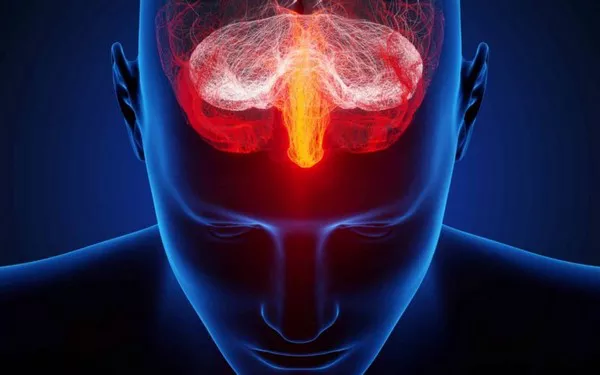Paranoid schizophrenia is a subtype of schizophrenia, a chronic and severe mental disorder characterized by distorted thinking, emotions, and behaviors. Individuals with paranoid schizophrenia often experience delusions and auditory hallucinations, which can significantly impact their daily functioning and quality of life. This article provides a comprehensive overview of paranoid schizophrenia, including its causes, symptoms, diagnosis, and treatment options available to manage this complex condition effectively.
Introduction to Paranoid Schizophrenia
Definition
Paranoid schizophrenia is a subtype of schizophrenia characterized primarily by paranoid delusions and auditory hallucinations. Delusions are false beliefs that are firmly held despite evidence to the contrary, while auditory hallucinations involve hearing voices that others do not hear.
Prevalence
Schizophrenia affects approximately 1% of the population worldwide, with paranoid schizophrenia being one of the most common subtypes. It often manifests in late adolescence or early adulthood, although it can occur at any age.
Causes of Paranoid Schizophrenia
Genetic Factors
Genetic predisposition plays a significant role in the development of paranoid schizophrenia. Individuals with a family history of schizophrenia or other mental disorders are at a higher risk of developing the condition themselves.
Neurobiological Factors
Imbalances in neurotransmitters, particularly dopamine and serotonin, are believed to contribute to the symptoms of paranoid schizophrenia. Dopamine dysregulation is specifically linked to the development of psychotic symptoms such as delusions and hallucinations.
Environmental Factors
Prenatal exposure to infections, malnutrition, maternal stress during pregnancy, and complications during birth are environmental factors that may increase the risk of developing schizophrenia, including the paranoid subtype.
Psychosocial Factors
Early life stress, trauma, social isolation, and substance abuse can also contribute to the onset or exacerbation of paranoid schizophrenia in vulnerable individuals.
Symptoms of Paranoid Schizophrenia
Positive Symptoms
Positive symptoms refer to behaviors or experiences that are added to a person’s normal way of functioning. In paranoid schizophrenia, positive symptoms may include:
Delusions: Fixed, false beliefs that are not based in reality. Common paranoid delusions include beliefs of being persecuted, spied on, or conspired against.
Hallucinations: Particularly auditory hallucinations, where individuals hear voices that may comment on their actions, command them, or converse with each other.
Negative Symptoms
Negative symptoms involve a reduction or loss of normal functioning:
Flat Affect: Reduced emotional expression and responsiveness.
Social Withdrawal: Avoidance of social interactions and difficulty forming relationships.
Anhedonia: Inability to experience pleasure or enjoy activities that were previously enjoyable.
Cognitive Symptoms
Cognitive symptoms affect thinking processes and may include:
Disorganized Thinking: Difficulty organizing thoughts or connecting ideas logically.
Impaired Memory: Difficulty remembering things or paying attention.
Poor Decision-Making: Difficulty making decisions or solving problems effectively.
Mood Symptoms
Mood symptoms in paranoid schizophrenia may include:
Anxiety: Persistent worry, fear, or nervousness.
Depression: Feelings of sadness, hopelessness, or emptiness.
Diagnosis of Paranoid Schizophrenia
Clinical Evaluation
Diagnosing paranoid schizophrenia involves a comprehensive evaluation by a mental health professional, which may include:
Medical History: Gathering information about symptoms, family history, and any previous psychiatric diagnoses or treatments.
Physical Examination: Rule out medical conditions or substance use that may mimic symptoms of schizophrenia.
Psychiatric Assessment: Assessing the presence and severity of psychotic symptoms, mood symptoms, and cognitive functioning.
Diagnostic Criteria
According to the Diagnostic and Statistical Manual of Mental Disorders, Fifth Edition (DSM-5), the diagnostic criteria for paranoid schizophrenia include:
Presence of delusions or auditory hallucinations.
Symptoms persisting for at least six months, including one month of active-phase symptoms.
Social or occupational dysfunction.
Exclusion of other medical conditions or substance use disorders that could better explain the symptoms.
Differential Diagnosis
Distinguishing paranoid schizophrenia from other mental health conditions, such as schizoaffective disorder, bipolar disorder with psychotic features, or delusional disorder, is crucial for accurate diagnosis and appropriate treatment planning.
Treatment Options for Paranoid Schizophrenia
Antipsychotic Medications
Antipsychotic medications are the cornerstone of treatment for paranoid schizophrenia. They help alleviate psychotic symptoms, such as delusions and hallucinations, by blocking dopamine receptors in the brain. Types of antipsychotic medications include:
First-Generation (Typical) Antipsychotics: e.g., haloperidol, chlorpromazine.
Second-Generation (Atypical) Antipsychotics: e.g., risperidone, olanzapine, quetiapine.
Psychosocial Interventions
Psychosocial interventions aim to improve functioning, promote recovery, and enhance quality of life for individuals with paranoid schizophrenia. These interventions may include:
Cognitive Behavioral Therapy (CBT): Helps individuals identify and challenge delusional beliefs and develop coping strategies.
Family Therapy: Involves family members in treatment to improve communication, support, and understanding of the illness.
Social Skills Training: Teaches interpersonal and daily living skills to improve social functioning and independence.
Hospitalization and Crisis Intervention
In severe cases or during acute psychotic episodes, hospitalization may be necessary to ensure safety, stabilize symptoms, and initiate treatment.
Community Support Services
Community support services provide ongoing assistance, rehabilitation, and vocational support to help individuals with paranoid schizophrenia integrate into their communities and achieve personal goals.
Electroconvulsive Therapy (ECT)
ECT may be considered for individuals who do not respond to medications or other treatments, particularly in cases of severe or treatment-resistant paranoid schizophrenia.
Prognosis and Long-Term Outlook
Course of the Illness
The course of paranoid schizophrenia varies among individuals. Some may experience episodic periods of exacerbation and remission, while others may have persistent symptoms despite treatment.
Functional Outcomes
With appropriate treatment and support, many individuals with paranoid schizophrenia can achieve significant improvements in symptoms and functional outcomes. However, long-term management and adherence to treatment are critical for maintaining stability and preventing relapse.
Challenges
Challenges associated with paranoid schizophrenia may include medication side effects, social stigma, difficulties with employment and relationships, and co-occurring substance use disorders or other mental health conditions.
See Also: Schizophrenia: Causes, Types, Symptoms, Diagnosis & Treatment
Conclusion
Paranoid schizophrenia is a complex mental disorder characterized by profound disturbances in thinking, emotions, and behavior. While the exact causes are not fully understood, genetic, neurobiological, environmental, and psychosocial factors contribute to its development. Early recognition, accurate diagnosis, and comprehensive treatment involving antipsychotic medications, psychosocial interventions, and support services are essential for managing paranoid schizophrenia effectively and improving outcomes for affected individuals. Ongoing research and advancements in treatment hold promise for further enhancing the quality of life and recovery prospects for individuals living with this challenging mental illness.


